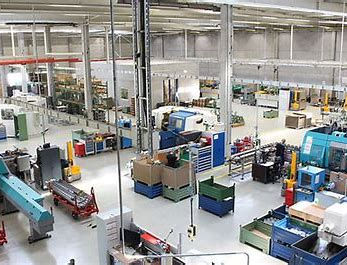Heading 3
Let's Chat
Give us a call: 1300 607 420 | +612 9030 0369
Human-Centred Investigations®
Look beyond traditional investigation methodologies and analysis tools to identify the real root and contributory causes and transform your investigation outcomes by understanding human behaviour and how the human brain works.

Transforming Your Investigations, Workplace Culture & Employee Experience: The Human-Centred Way
Regardless of your industry or the types of investigations you conduct, our Human Centred Investigations® approach will transform the quality of your findings, enhance workplace culture, and boost employee engagement.
This practical, human-centred approach deepens your team’s understanding of human behaviour while fostering curiosity, empathy, emotional intelligence, and psychological safety, all key drivers for a high-performing, inclusive, physically and psychologically safe work environment.
Experience better investigative outcomes and a more engaged workforce through our human-centred approach to incident investigation.

Have you ever tried to complete a jigsaw puzzle without having all the pieces? It's incredibly frustrating, but the stakes and impact on others are low.
Metaphorically, completing an incident investigation is like completing a jigsaw puzzle as we search to locate the pieces and put them in the right place to achieve the complete picture. However, while the stakes and impact are relatively low in the world of puzzles, the same cannot be said for incident investigations, where the stakes are high and missing or overlooked 'pieces' can lead to misguided assumptions about root causes and contributory factors, ineffective corrective actions, and unjust disciplinary or legal action. All of these can have devastating impacts on individuals, teams, and organisations.
At Insync Workplace Solutions, we have extensive investigation experience. The team has conducted and reviewed thousands of investigations and trained hundreds of investigators. We have seen first-hand the impact of poor-quality investigations that have missed vital information and been impacted by bias (check out our article on 'what you look for is what you find) or have attributed the 'root cause' to things like 'human error', 'they didn't have their mind or eyes on the task', 'they were complacent', 'they were rushing', 'they put themselves in the line of fire' etc. without understanding or taking into consideration that most of these 'factors' are an 'outcome' of our brain's natural operating principles. This, in turn, leads to incorrect 'assumptions' being made, which changed the outcome of the investigation, had a significant impact on those involved and did not prevent the incident from recurring because they had not implemented the 'right' corrective actions.
To mitigate this risk, we have meticulously designed our Human-Centered Investigations training, which can be utilised independently or integrated with your existing investigation tools, methodologies, and frameworks to improve your understanding of how the human brain works and improve the quality of your investigations.
Based on extensive investigation experience and the latest research in neuroscience and positive, cognitive and behavioural psychology, Human-Centred Investigations® deepens your understanding of how the human brain works, including its limitations and equips you with the knowledge and tools to eliminate or minimise the risk of oversights and uncover 'pieces' (evidence/information) previously 'hidden' by biases and fear, transforming the quality of your investigations and ensuring that you get a more complete, accurate picture every time which in turn enhances the employee experience, shifts mindsets, changes behaviours, increases morale and productivity and reduces safety incidents.

Meet Our Founder, Chief Enabling Officer, Principal Investigator & Designer of Human-Centred Investigations - Deanne Boules
With over 30 years of investigation experience, I have conducted and reviewed thousands of investigations ranging in complexity and across most industries. My journey began as a police officer with the NSW Police Force investigating criminal matters and then as a SafeWork NSW Inspector investigating workplace fatalities and serious injury incidents before I transitioned into a private industry where my investigation experience spanned across Insurance investigations, crash reconstructions, and an array of internal and external investigations across work, Health and Safety (including investigations under legal professional privilege), HR, Industrial Relations, Aviation, Quality, Environmental, Customer/Client Complaints, Internal Fraud, and other organisational matters.
I have presented evidence in federal and state courts in criminal, civil, and coronial matters and have been cross-examined by some of Australia's best barristers, solicitors, and QCs (now KCs). Over the years, I have completed numerous investigation training courses and have trained and mentored hundreds of individuals in incident investigation. I can't tell you how many times I have reviewed investigation reports that identified root causes and contributory factors as being 'human error', 'insufficient training', the person not having their mind or eyes on the task', 'they put themselves in the line of fire', 'they were complacent', 'they were rushing' etc. with absolutely no consideration given to the way the human brain works, including its limitations.
The human brain is the most complex organ in the body. It controls thought, memory, emotion, feeling, decision-making, touch, motor skills, vision, breathing, temperature, perception, hunger, and every other process that regulates the body. It is the centre of our nervous system and the locus of our cognition, and no two brains are hardwired the same. We all perceive things differently. We all take in, process, retain and retrieve information differently; we all respond differently to situations; we all have biases and only take in about 20% of what we see, which is generally based on what is important to us, what interests us, or if it is something out of the ordinary and that is just the start. So, how can we expect our people to conduct thorough, factually correct investigations without educating them on how the human brain works?
I have always had a curious mind and have never just 'settled' on an answer. As a kid, I drove my parents and teachers crazy, asking them 'but why' and would not stop until I got an answer that made sense to me. This is probably one of the reasons why I am so passionate about investigations and why I have invested years of study into honing my skills. I even travelled to the US to study Crash reconstruction at the Institute of Police Technology & Management (IPTM), University of North Florida, because there wasn't any training like it in Australia. My curiosity in relation to human behaviour and trying to understand 'why people do what they do' and 'why they make the decisions they make' led me to study neuroscience, positive, cognitive, and behavioural psychology and over the past couple of years I have pulled all my years of experience and training together to develop, Human-Centred Investigations, a holistic, human-centred approach to incident investigations.
Now, before you ask, yes, I am trained in several popular investigation methodologies and analysis tools, including ICAM, Taproot, Fishbone, Fault Tree Analysis, Pareto Charts, and 5 WHY's. However, I rarely use them in my own investigations, not because I don't think they have their place but because my foundational training in conducting criminal investigations in the police force and at Safe Work instilled in me a rigorous approach to evidence gathering that complied with the strictest rules of evidence, established a prima facie case and would withstand the highest level of scrutiny to prove the allegations 'beyond reasonable doubt' which aligns with the presumption of innocence whereas civil matters including those heard within the Fair Work Commission, and most workplace investigations require a lesser standard of proof being the 'balance of probabilities. Although workplace investigations are not expected to be conducted the same way as a police or safe work investigation, it is critical to keep in mind the principles of evidence that might apply. This is particularly important, considering many workplace investigations (including investigations into safety incidents that may result in disciplinary action being taken against employees) can and do end up in the Fair Work Commission, which can not only be expensive from a financial aspect but can cause significant reputational damage and impact on an organisations culture.
You might have guessed by now that I could talk about incident investigations for hours, so I am going to stop here and just finish by saying that regardless of what industry you work in or what methodology or analysis tool you use, the outcome of an investigation is only as good as the evidence you gather, which can be impacted by biases, perception and the way our brains are hardwired and this is something that most investigation training programs (including the one's I did when I was in the Police and at Safe Work don't teach and that is why I have spent years studying human behaviour and how the brain work and designing this investigation training which you can use on its own or layer over your investigation training, methodology or framework for a more comprehensive, holistic and accurate, human-centred investigation outcome.

Beyond Traditions Methods: Embracing Human-Centred Investigations®
Becoming a good, competent investigator doesn't happen overnight; it doesn't happen naturally for some people, and it certainly doesn't happen just because you have completed a one or two-day investigation course and have a certificate to say you are a qualified 'investigator' or 'lead investigator'. However, it is a skill that can be learned and improved; however, it requires practice and continuous learning.
You see, becoming a great investigator not only requires investigators to have a fundamental knowledge and understanding of things like ethical considerations, applicable legislation, rules of evidence and burdens of proof, even though these don't specifically apply in organisational investigations, having an understanding of them and applying their principles can improve the quality of your investigations. Being a good investigator requires being curious and nonjudgmental, having an open mind, and listening—and I mean really listening—not just to the words that are said but also to the body language and what is 'not' said because often it is what is 'not said' that provides us with the answer we are seeking.
Great Investigators also have a high level of empathy and emotional intelligence and excellent communication and conversational skills. They are highly skilled at building rapport, 'reading the room' and creating a psychologically safe environment where those involved in the investigation process feel comfortable and at ease. They understand human behaviour and the impact of things like biases and blind spots, both their own and those of potential witnesses.
They understand how the human brain works, including its limitations. They understand the 'threat' response, how no two brains are the same, and how we are all hardwired differently depending on our background, culture, values, beliefs, education, influences, etc. They understand how we all take in, process, retain and retrieve information differently and that our perception of risk is different, and they understand how all of these things can have an impact on the way they conduct the investigation, on evidence gathered, on witness accounts and ultimately on the findings of the investigation.
Understanding these 'human' elements is the critical skill that most traditional investigation methodologies used worldwide to investigate workplace incidents or concerns don't consider and don't teach, and that is where human-centred investigations come in. Human-Centred Investigations® bridge the gap between traditional investigation methodologies and analysis tools, traditional 'human factors', neuroscience, positive, cognitive and behavioural psychology providing a more holistic approach to incident investigation training and better investigation outcomes.

In the intricate and often complex world of incident investigations, the depth and quality of your findings hinge on the robustness of the evidence you collect. Traditional methodologies such as ICAM, Taproot, 5 Whys, and Fishbone offer valuable frameworks. However, they often overlook a crucial element—the human dimension and we are not talking about the traditional 'human factors'.
Our Human-Centerd Investigation® Training bridges this gap, ensuring that investigators are not just competent in the methodologies or frameworks they use but also exceptionally adept in the nuanced art of human interaction and evidence gathering by understanding how the human brain works and the impact that can have on the incident occurring in the first place, the incident investigation and its outcomes.
Applying a human-centred approach to safety investigations and, in fact, any type of investigation is essential as it ensures a more accurate and comprehensive understanding of what happened. This, in turn, enables organisations to implement more successful ''human-centred' prevention strategies and help cultivate a more positive, inclusive safety culture.
Why Human-Centred Investigations?
Benefits of a Human-Centred Approach to Incident Investigations
Adopting a human-centred approach to incident investigations offers a range of significant benefits that can transform not only the investigation process itself but also the broader organisational culture. Here a just a few of the benefits:

Greater Understanding of Human Behaviour
Understanding how the brain works & acknowledging factors like perception & natural attention limits, a human-centred approach enriches investigators' understanding of how physical & cognitive conditions impact behaviour leading to greater understanding of causal factors, more accurate assessments & tailored corrective actions.

Promotes Psychological Safety
By prioritising empathy, emotional intelligence, and psychological safety during investigations, employees feel physically & psychologically safer & more supported. This is crucial for fostering an environment where people feel free to speak up & share concerns without fear of retribution or relaliation.

Builds an Inclusive, Positive Culture
A human-centred approach aligns with values of respect, understanding, & kindness. Regular use of this approach can help shift organisational culture towards these values, making it a more inclusive & supportive place to work.

Improved Evidence Gathering
A human-centered approach helps investigators recognise & mitigate personal biases, leading to a more balanced & comprehensive collection of evidence. This focus on objectivity enhances the accuracy & reliability of investigative findings.

Enhanced Employee Engagement
When employees see that investigations are conducted with genuine curiosity, empathy & respect for their perspective, they are more likely to engage openly in the process. This can lead to increased cooperation and more honest communication.

Increased Moral & Employee Retention
When employees feel respected & valued, even in challenging situations like investigations, they are more likely to remain with the organisation. This approach helps retain talent & reduces turnover costs.

Improved accuracy & Outcomes
By understanding human behaviour & motivations, a human-centred approach helps uncover deeper insights into the issues at hand. Investigators are more likely to obtain comprehensive & nuanced information, leading to more accurate conclusions.

Strengthened Trust in Management
Adopting a human-centred approach demonstrates that the organisation values fairness & cares about its employees. This can build trust between employees & management, which is crucial for a healthy workplace environment.

Legal & Compliance Safeguards
Conducting thorough & empathetic investigations reduces the risk of overlooking key details & ensures that the process complies with legal standards & is conducted in a fair & just manner, reducing the risk of costly legal disputes & potential penalties.


Human-Centred Investigation Training Courses: Essential Training for All Investigators
Our human-centred investigation courses are designed for anyone tasked with conducting or overseeing investigations that involve humans. Whether you are dealing with workplace health and safety (WHS), HR issues, misconduct allegations, criminal activities, compliance, insurance liability, customer or client complaints, or any other investigation type across all industries.
Our programs are designed to improve the quality and accuracy of your evidence and investigations, from evidence gathering to determining findings and making recommendations to remedy.
Human-Centred Investigations® is not another investigation methodology or causal analysis tool. Instead of introducing a new method, we simply go beyond traditional methodologies, focussing on understanding human behaviour and its impact on incident investigations. From gathering physical evidence to interviewing witnesses and analysing your findings, all of these elements of an investigation are open to bias, influence, recency/primacy effect,
This approach allows our training to be used as a standalone resource or with your existing investigative methodology (e.g., ICAM, Taproot, 5 Whys, Fishbone, etc.).
Enhance your investigation skills with a deeper behavioural insight to achieve more effective and empathetic outcomes.
Investigation Training
Throughout the year, we run public Human-Centred Investigation® training courses across the APAC region. To register your interest, click on the program that your are interested in from the programs listed below and fill out the expression of interest form and we will be in touch we courses become available.
If you would like an in-house program tailored to your organisation, reach out to the team at enquiry@insyncwps.com to dicusss your needs.
Other Investigation Services

Check out our latest articles
Find Out More
To find out more about our investigation services or to book Deanne for your next workshop or event, leave your details below, and one of our team will contact you to discuss your needs.


























